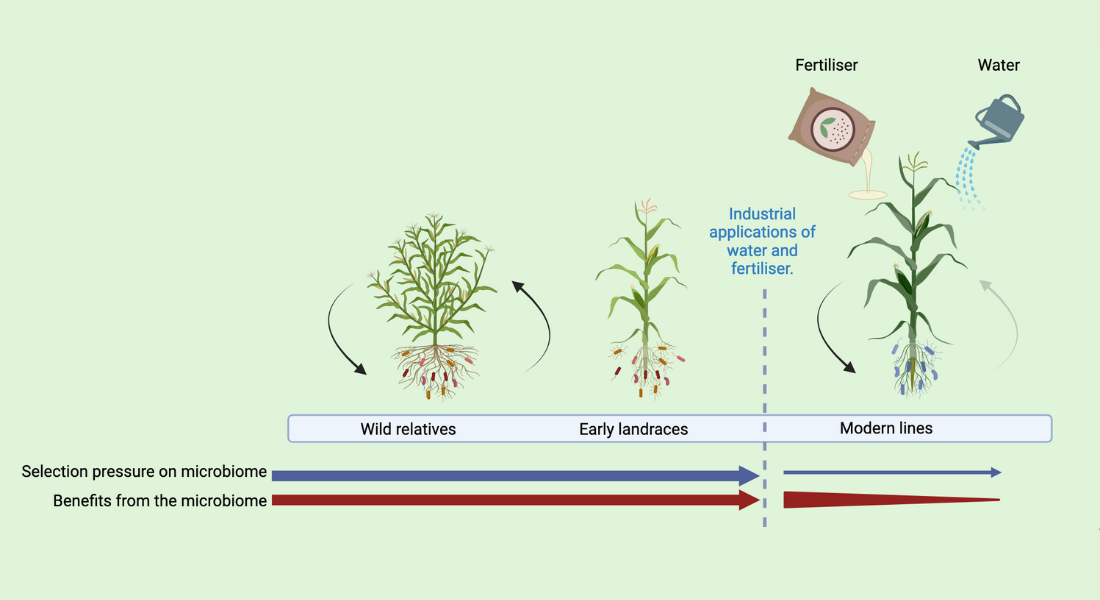New study sheds light on the evolution of microbiomes in wild and domesticated plant
A recent publication in Trends in Microbiology offers a comprehensive exploration of how plant genomes and environmental factors shape the composition and evolution of plant microbiomes, providing a new lens on plant health and adaptation. Importantly, it highlights how domestication has had a profound effect on every aspect of the plant, including the evolution of the microbiome.

A co-evolved relationship
The research highlights how this evolved relationship between plant and microbiome needs to be understood before we can breed crops that use microbes more effectively to reduce the impact of agriculture.
Led by Associate Professor Christopher James Barnes from Center for Evolutionary Hologenomics and Aarhus University and his collaborators, the study bridges ecology, genetics, and microbiology to examine the intricate dynamics between plants and their microbial partners.
“This research emphasises the need for a holistic view of plant-microbe interactions, considering them over both ecological and evolutionary scales” says first author Christopher James Barnes.
Regulating microbiomes to the environment
The review states that wild plants regulate their microbiomes through evolutionary mechanisms encoded in their genomes, selecting specific microbes to thrive in their local environments. This adaptation, driven by natural selection, enhances the plants’ fitness and resilience.
However, in domesticated crops, the story is different. It describes how domestication has enhanced traits like yield and uniformity, but it has also disrupted some natural plant-microbe interactions making them less efficient. The authors suggest that crop genomes could be engineered to foster beneficial microbiomes, potentially improving nutrient and water use efficiency and boosting resilience to environmental stresses. However, they caution that such interventions could unintentionally reduce yields.
"There is much ongoing research trying to make plants use microbes more effectively for better nutrient uptake and climate resilience. Yet we understand so little of the co-evolution betweens plants and their microbiomes. I hope we can understand and use this knowledge of co-evolution to make crops interact more sustainably with the environment in the future." Christopher James Banes ends.
Read the publication open access in Trends in Microbiology here.
Contact:
Associate Professor Christopher James Barnes
